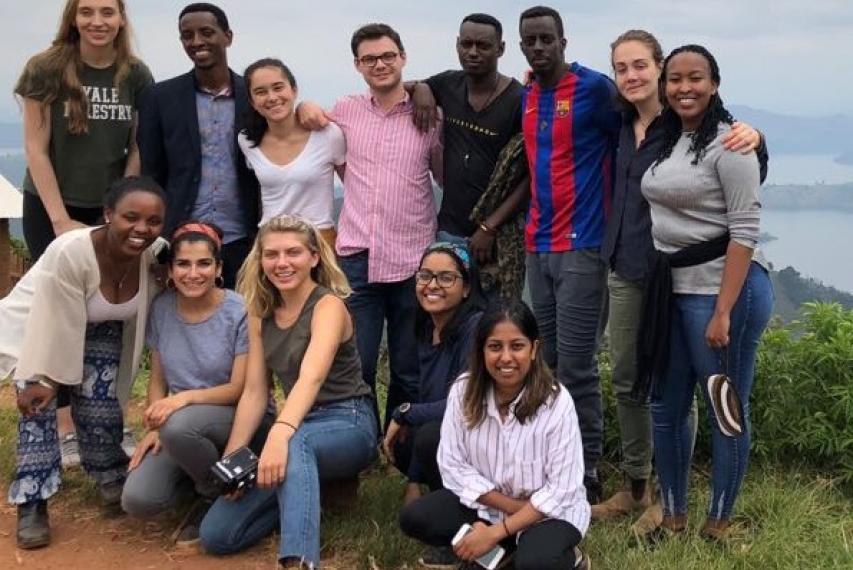
“We’re driven by the belief that all people, no matter who they are or where they live, deserve the chance to reach their full potential.” I saw this quote written on the wall every morning when I walked into the University of Global Health Equity (UGHE) in Kigali, Rwanda this summer. It is the mantra of UGHE and quickly came to color my entire experience in East Africa. Founded by former Rwandan Minister of Health Dr. Agnes Binagwaho and Partners in Health co-founder, Dr. Paul Farmer, the University of Global Health Equity seeks to research innovative ways to provide equitable and quality healthcare in resource-poor settings while training the next generation of African medical leaders. My role at UGHE was as a research intern under Dr. Binagwaho, conducting a few projects to investigate several aspects of health system strengthening and health disparities. Having the opportunity to learn from a global leader like Dr. Binagwaho made me consider so many new angles to my work with each discussion.
My main project was a detailed analysis of the faith-based healthcare system in Rwanda. For the past twenty-years, the Rwandan government has cultivated community ownership of its healthcare system by partnering with local organizations to put health centers in each district. Currently, faith based organizations comprise 30% of the healthcare infrastructure. But due to close coordination, the government funds 50% of those facilities’ operations. The faith-based institutions commit to providing the same care as public institutions, acting simply to extend the network of health throughout the country. My job was to interview key faith-based and health sector leaders to evaluate perceptions of the program’s effectiveness and to document its role in the Rwandan healthcare system. From speaking to these individuals, my key finding was that religious organizations provide a vital service in delivering healthcare to poorer and more remote Rwandan communities. Fueled by a religious desire to serve the poor, over 90% of faith-based healthcare facilities operate in hard to reach rural areas. This conclusion wove perfectly with the equity agenda developed at UGHE, showing that in resource-poor areas key partnerships with religious organizations can be a vehicle for providing a preferential healthcare option for the poor.
While I learned a great deal from my work, I grew so much more from living daily in Kigali and travelling through East Africa. Rwanda is an incredible country. I witnessed firsthand the impressive, equitable development achieved over the past decade through the government’s dedication to its people. Driving in to the city, I was struck first by its order and cleanliness. I felt significantly safer and cleaner in much of Kigali than I do in a majority of cities in the US. They have monthly car-free days where everyone takes to the streets to play sports and meet their neighbors. Even the local markets are organized and tidy. I found this all incredibly inspiring. I feel as though growing up in the states, we are presented with a limited view of Africa. The stories are typified by villages, safaris, and jungle animals, not stately clean cities and universal healthcare. Simply being there shattered stereotypes and exposed single narratives that I had ingrained since my childhood. Coming home, it made me question what other people, places, and ideas I have reduced into one-dimensional, archetypal visions. Simply put, my time in Rwanda, made possible by the Center for Global Health Grant, instilled in me a passion for crafting equitable systems of healthcare access and challenged some of my basic assumptions about living in a developing country.
